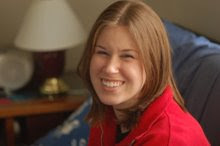I started reading "Stories of English" by David Crystal. For my English minor, I had to take a history of English course at OU. We read "A History of the English Language" by Baugh and Cable, one of the most comprehensive texts on the subject you can get, featuring both a linguistic and cultural history of the language from the Middle Ages on up. Being the dork that I am, I was really geeked about the class until the professor totally ruined it for me by being the worst lecturer I ever had at OU and thus, sort of ruined the subject for me for a few years. She was a PhD student in her 50's and had absolutely no idea how to relate to people, much less teach.
But anyway, Neil let me borrow a copy of "Stories of English" and it got me looking into it again. Crystal approaches the subject in an entirely different manner, starting out by highlighting how most teach the history of English: Most tell "the" story of English as though there is only one - formal English. What's interesting is that even among those who strive to use formal English, what is actually "proper" English varies from discipline to discipline, style guide to manual. What is correct according to the AP Style Guide is wrong in certain instances of Chicago Manual, just as Strunk & White and the MLA approve of some things that others would not. Psychologists follow different styles than journalists, and so on. And no one typically speaks in those formalities on a daily basis - there are thousands of dialects and different forms of slang around the world. But most histories of English ignore all of the irregularities and try to make it one, seamless story. In the past decade or so, this has changed -- dictionaries and style guides are starting to tell more of the story of conversational English, but Crystal attempts to tackle it more comprehensively.
OK, so I am still a total geek. I think it's really cool. I am way too excited to be reading another history of English, but what else is new?
A Softer World: 1248
9 years ago

